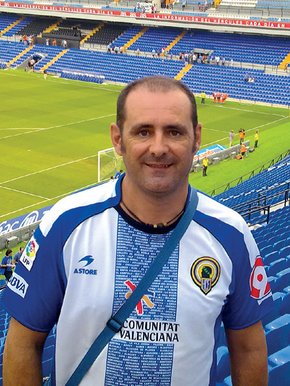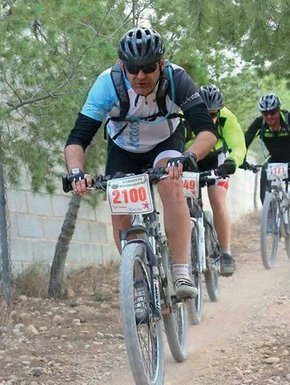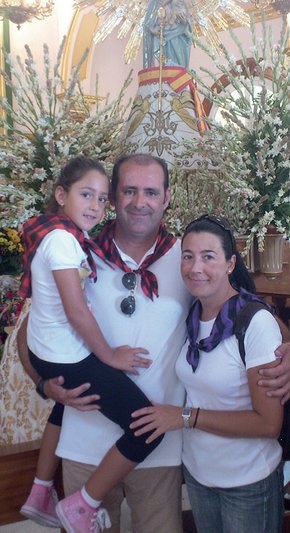It’s great to speak to you, Ricardo. You have an inspiring story about perseverance to share but let’s start by hearing a little about yourself.
My name is Ricardo García Sala and I was born in 1971 in Benejúzar, a small town in the coastal province of Alicante, Spain. Almost 20 years ago, when I was 26, I learned I had chronic kidney disease and at some point would have to go on dialysis to keep me alive.
Reading, cooking, automobiles: We all have passions in life and yours has always been sport. Did that change after being diagnosed with kidney disease?
Sport has always been and will always be my passion. I started playing handball when I was just 8 years old. After receiving my diagnosis, I had to officially drop out of the team, though I continued training as long as I could. Three years later, when I was 29, I started dialysis. No question that it was hard news to accept at such a young age, with a lifetime to live ahead of me. Even so, I’m lucky dialysis was an option and that I was able to train on days when I didn’t have treatment.


